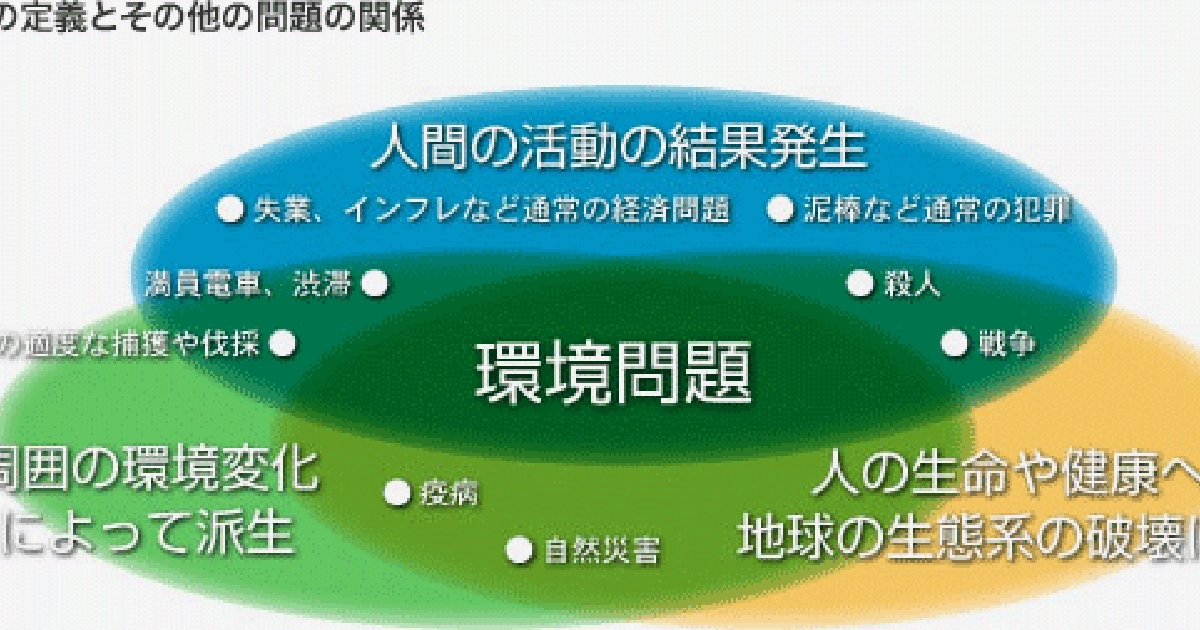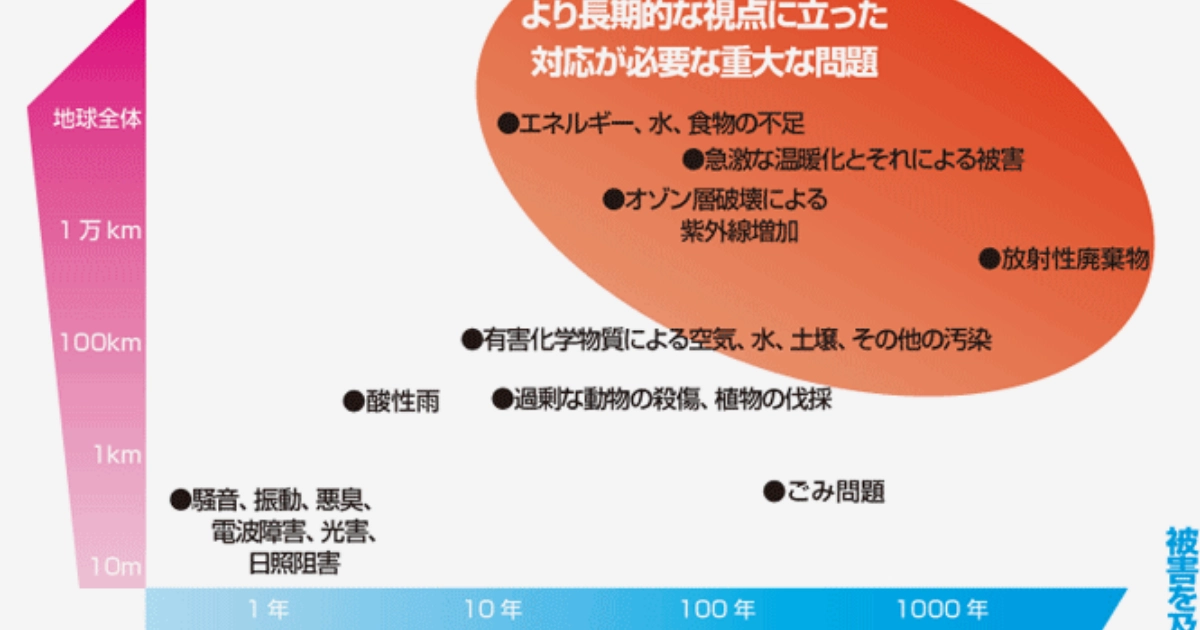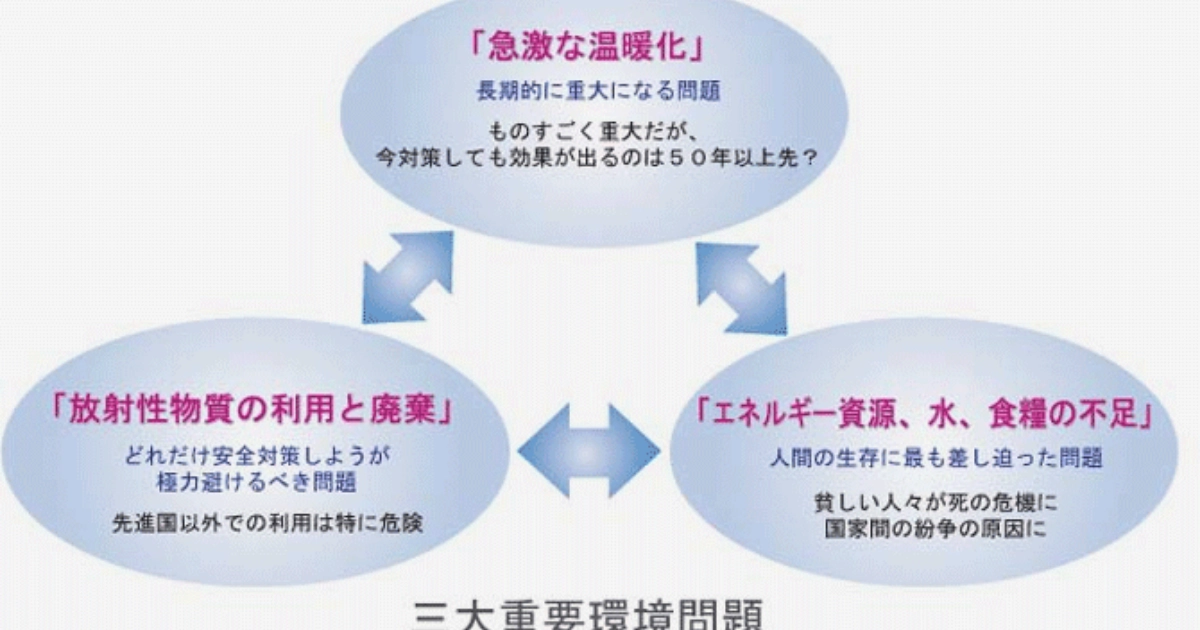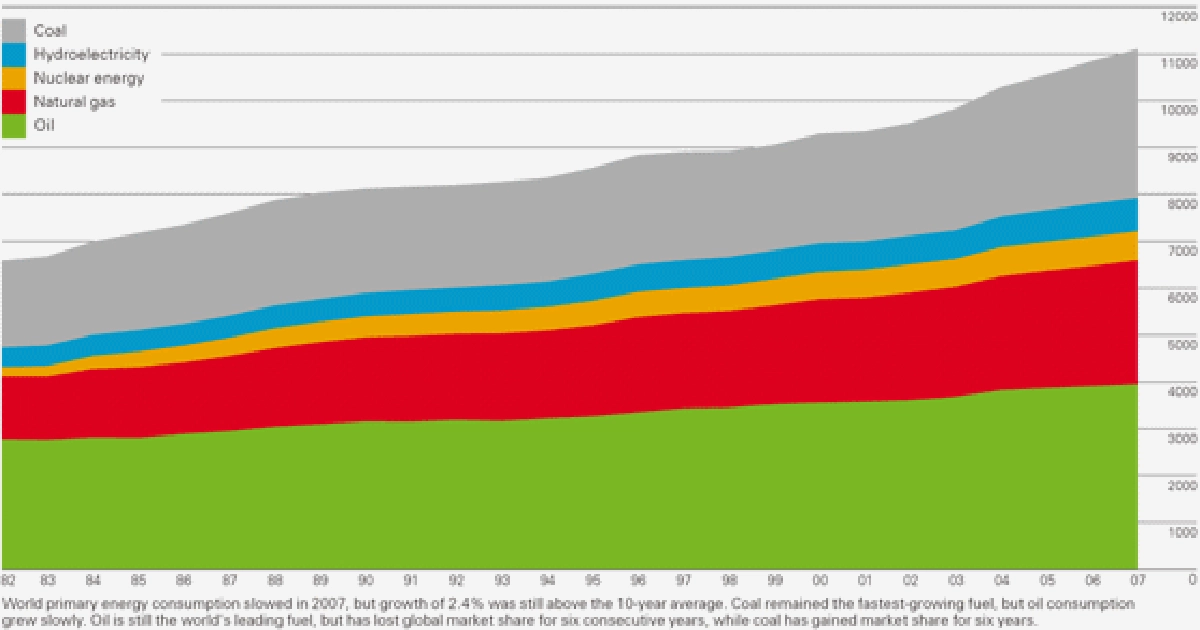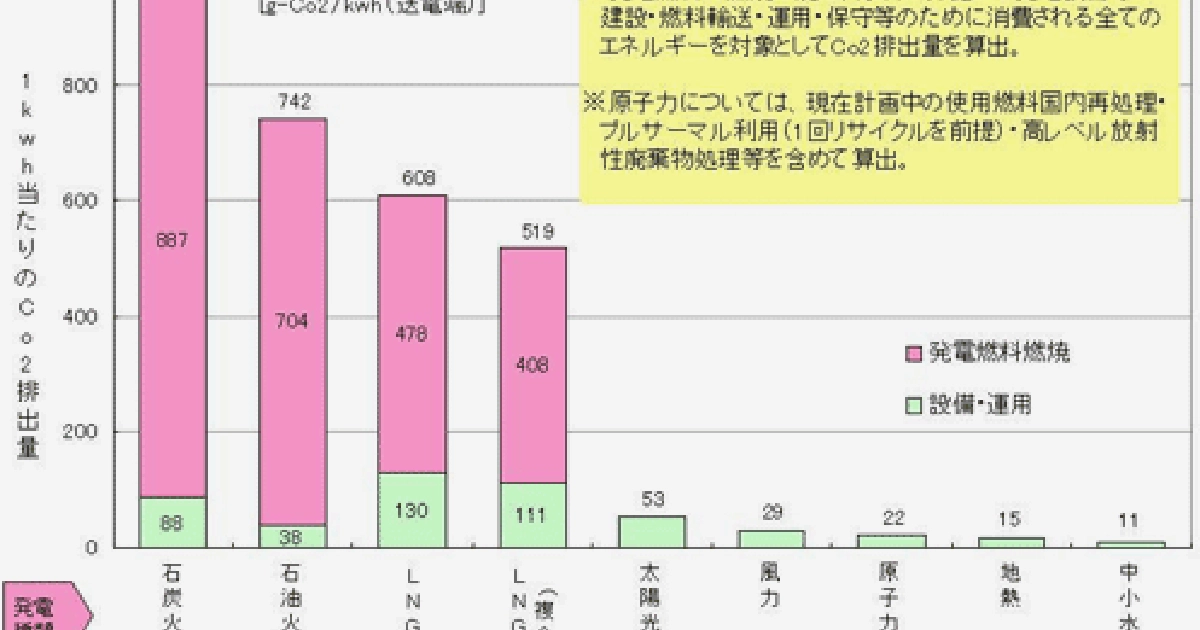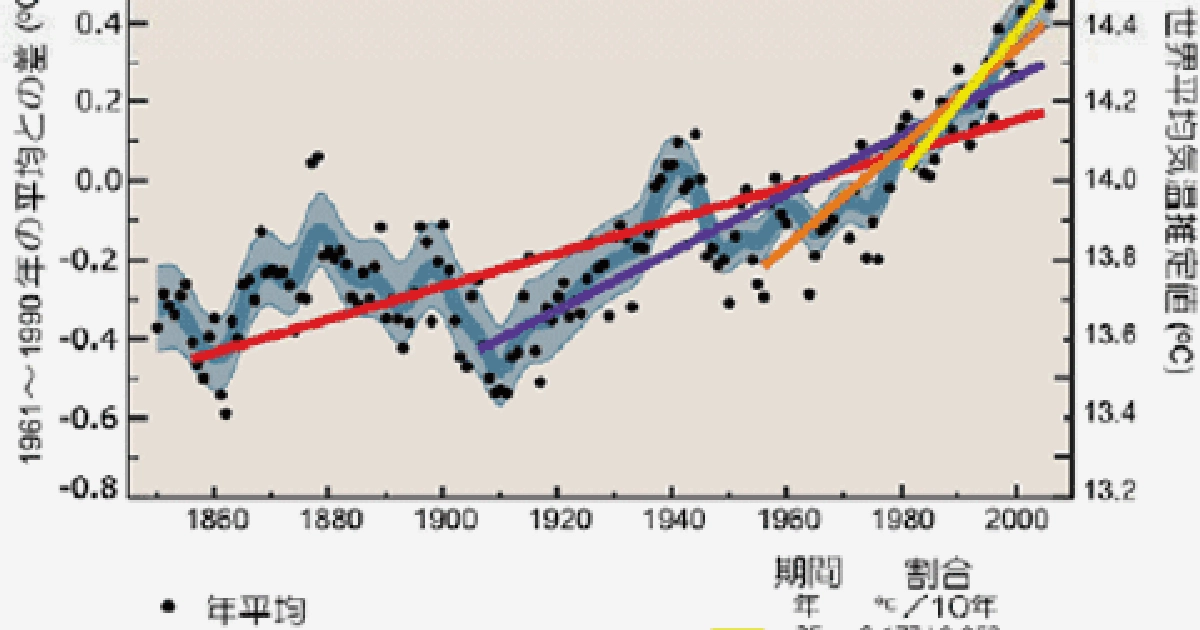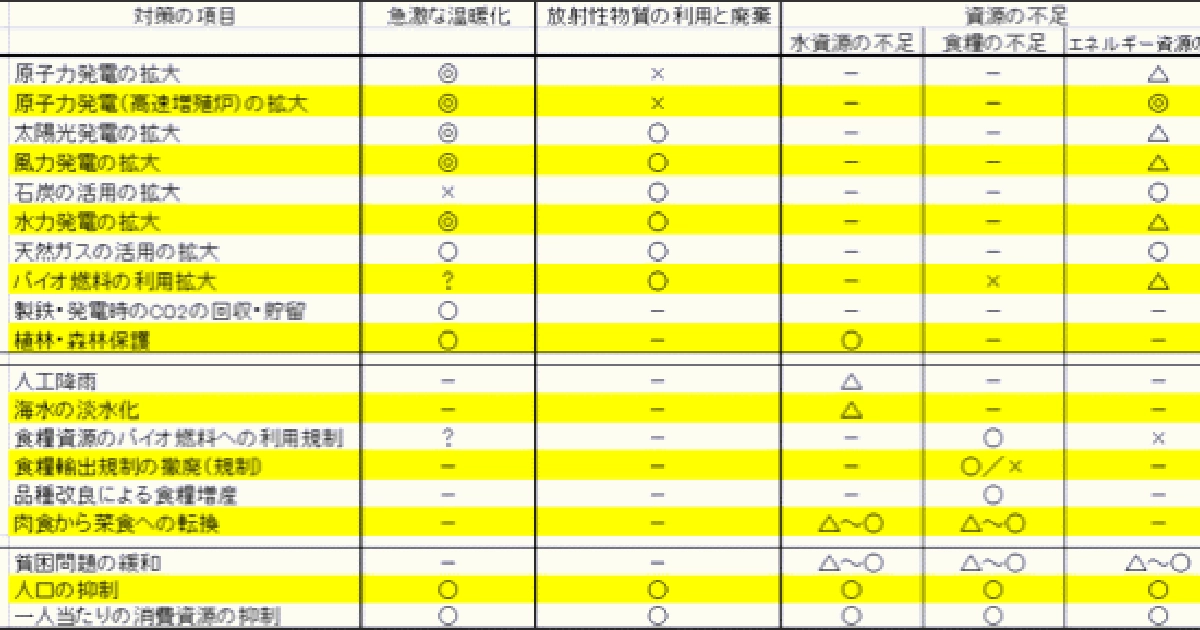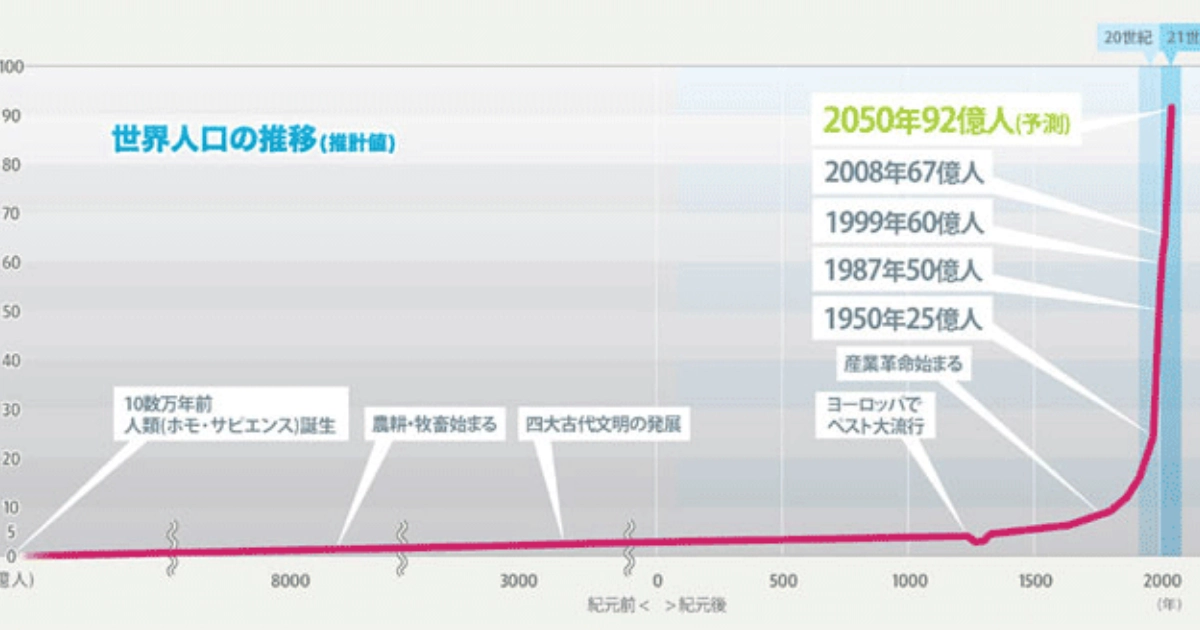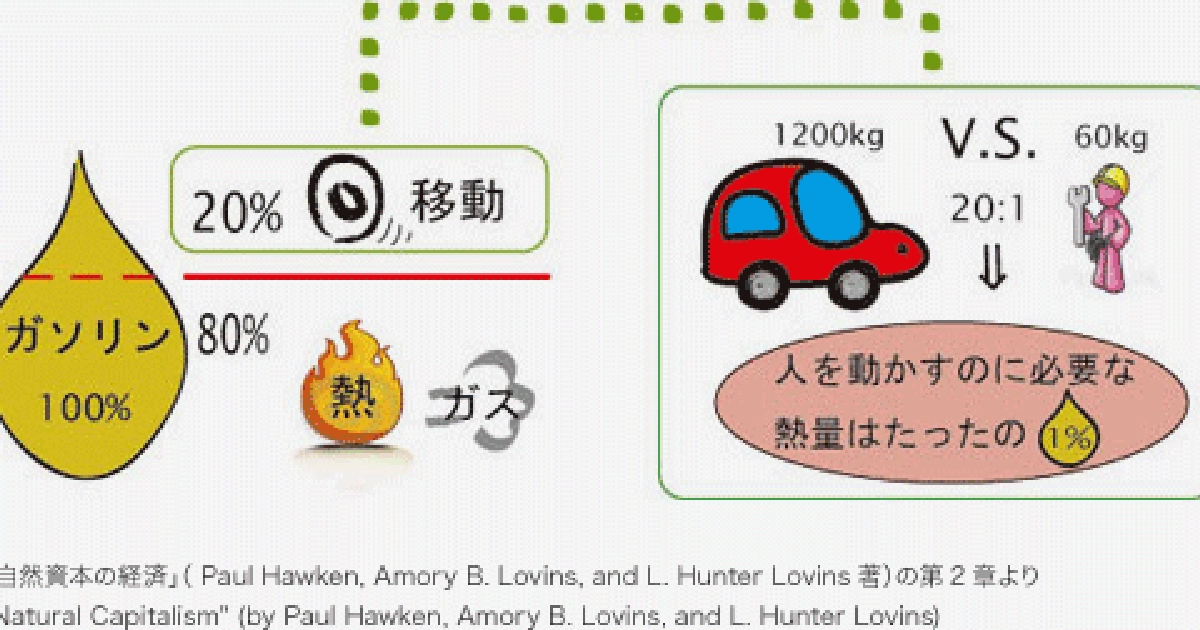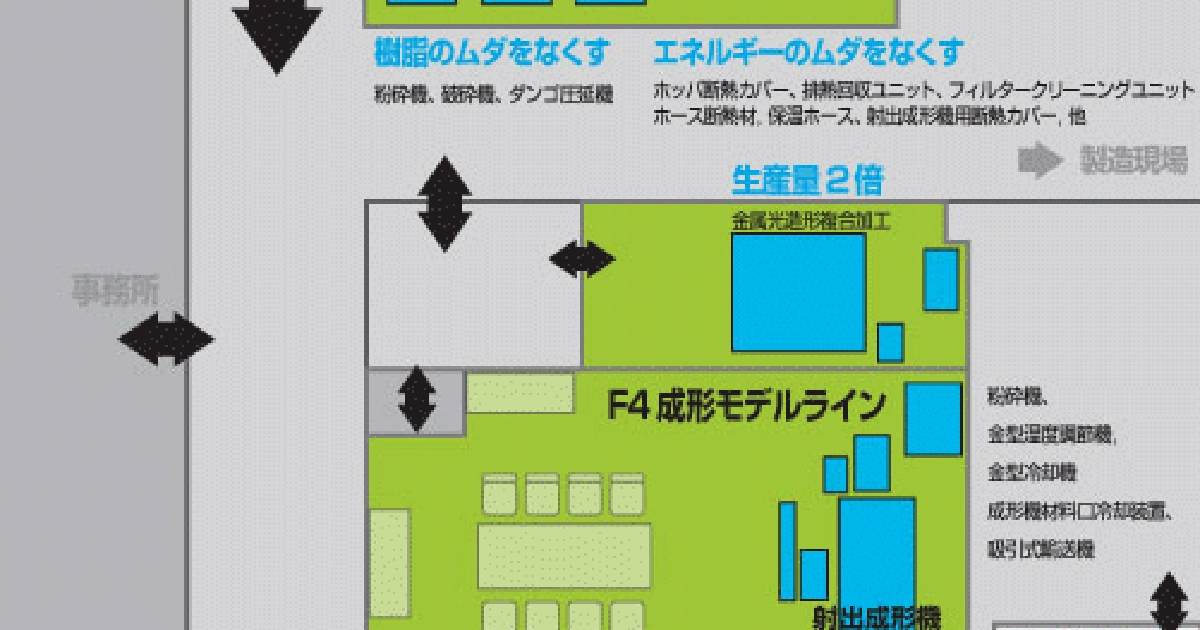Representative's Green Column
2. What exactly is an environmental problem?
2008.06.30
What about the war? What about a crowded train? Who makes a bonfire?
In the previous column, I mentioned that global warming, which is currently prevalent, is not the only environmental problem, and that it is necessary to be aware of environmental problems that are not affected by the widespread epidemic.
So what is the topic of environmental problems in the first place?
There are various problems on the earth surrounding human beings, but what are the environmental problems and what are not the environmental problems? What about the war? What about a crowded train? How about cutting a tree and bonfire?
With such a question, I tried to find out the meaning of the word "environmental problems".
First of all, when I looked it up in the free encyclopedia "Wikipedia" on the Internet, it was as follows.
"Environmental problems are a general term for problems caused by changes in the surrounding environment as a result of human beings' activities." 』\
Wikipedia: Environmental issues
Indeed, is it a problem that occurs when people are active and the surrounding environment changes? Then, in murder and war, people are killed or injured directly, so this seems to be removed from environmental problems for the time being.
However, if this is defined as it is, environmental problems are still a wide range of problems.
First, the cause of environmental problems is that the surrounding environment has changed due to some human activity.
However, when human beings perform some kind of activity (activity that acts on the outside other than mental activity), it always causes some change in the surroundings. If all the problems caused by the change are environmental problems, all the problems that humans are involved in are environmental problems.
It may be true if you think broadly, but isn't it a little too wide?
For example, today's commuter train was full and very painful, but the environment Inside the train was flooded with humans and gave people an unpleasant experience because humans went in the same direction all at once. So, if you think about it broadly, it might be an environmental problem.
Also, for example, a thief stole into someone else's house and stole furniture, for example. The change in the environment, in which furniture disappeared from the house, made the people in the house very troubled. Therefore, the act of thief can be said to be an environmental problem, isn't it?
After all, this does not fit the sense.
Isn't the definition too broad?
So, for me, I thought of the following definition.
"Problems caused by changes in the surrounding environment as a result of human activities, with a high risk of damage to human health and life, and destruction of the earth's ecosystem."
Wouldn't it be better for us to limit the problems that have arisen to those that lead to or are likely to lead to human health, damage to life, and the destruction of the Earth's ecosystems?
Here, the damage that can occur as a result of environmental problems is divided into two categories: "damage to human health and life" and "destruction of the earth's ecosystem."
Until a few decades ago, I think there was a strong tendency for only "damage to human health and life" to be taken up as a problem.
It was an era when the word "pollution problem" was used rather than the word "environmental problem". However, in recent years, when it comes to environmental problems, not only the damage to human health but also the "destruction of the earth's ecosystem" cannot be helped.
This is a big change.
It's not good to think only about humans.
Therefore, if the damage to animals and plants is so great that it causes an imbalance in the ecosystem, even damage to animals and plants is recognized as "destruction of the earth's ecosystem" and is positioned as an environmental problem. Will be.
However, to put it the other way around, for example, just catching and eating fish, killing and eating livestock, cutting a little tree in the forest and burning it, that is, "damage to the health and life of animals and plants" If it is not enough to destroy the ecosystem, it will not be an environmental problem in the current sense.
In this way, even though the current situation is global environmental problems, I think that the recognition of problems still emphasizes humans, especially humans.
However, since it is an environmental problem from the perspective of humans, I think it can't be helped at this stage.
Next time, I would like to investigate what kind of problems are broadly related to the environmental problems defined in this way.
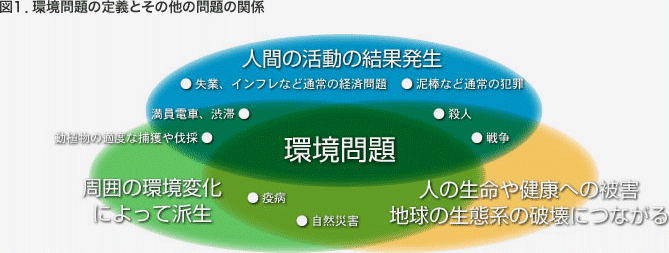
June 30, 2008 Hironobu Matsui


